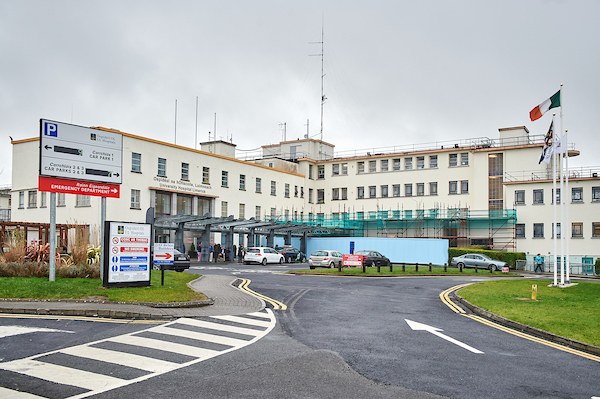CHRONIC overcrowding in University Hospital Limerick (UHL) is back under the national spotlight following confirmation HIQA is considering inspecting the Emergency Department as part of its recent monitoring of this issue.
The INMO’s Trolley Watch reported there were 87 patients on trolleys in UHL last week, which fell to 71 on Tuesday before increasing again to 75 on Wednesday.
Calls are being made for the Emergency Department Taskforce to be convened and for emergency measures to be deployed in the areas worst hit.
UHL regularly has the dubious distinction of being the most overcrowded hospital in the country.
Deputy Michael McNamara has called on the HSE and government to publish the findings of a review by the Health Information and Quality Authority (HIQA) into the ongoing trolley crisis at University Hospital Limerick (UHL).
The Independent Deputy issued his request in Dáil Éireann on Wednesday after Junior Health Minister Mary Butler confirmed to him that the health agency has written to the CEO of the UL Hospitals’ Group about its evaluation of the current factors influencing overcrowding in the Emergency Department at UHL.
“I raise this issue out of the necessity for some kind of independent review with the Taoiseach who seemed to take it on board and said he would refer it to the HSE and the Health Minister Stephen Donnelly.
In the Dáil today, I called on the HSE and government to publish the findings of a HIQA review into the ongoing trolley crisis at University Hospital Limerick. pic.twitter.com/acDp6HXAdX
— Michael McNamara MEP (@McNamaraMEP) February 9, 2022
“What is happening with this independent review, are we going to proceed with it?” he asked.
Minister Butler confirmed HIQA is monitoring overcrowding in a number of hospitals including UHL over the last number of weeks.
“HIQA has had recent correspondence with the hospital group CEO regarding evaluation of the current factors influencing overcrowding in the ED. HIQA has also written to HSE senior management to highlight HIQA’s intention to initiate inspections under the national standards for safe and better healthcare.”
The Independent Deputy recalled overcrowding reached another new record recently in UHL when 111 patients were left languishing on trolleys recently.
Deputy McNamara also called on the Government to confirm if an independent review, separate to HIQA’s review, would be carried out after the Taoiseach confirmed to him last month such a review would be considered.
“A full review of operations within the UL Hospitals Group is required if we are to ultimately find lasting solutions to the overcrowding issues,” stated Deputy McNamara.
Stating HIQA has a limited remit, Deputy McNamara said he didn’t think the independent watchdog is in a position to recommend the upgrading of Ennis Hospital from a Model Two to Model Three hospital.
“Furthermore, analysis of the impact of population growth on the demand for services with the UL Hospitals’ Group is also not a consideration for HIQA.”
He asked if the correspondence between HIQA and the group would be published in the interest of accountability.
If it is the case an independent review is not being completed, Deputy McNamara said this would be disappointing as HIQA’s remit is limited.
Minister Butler pledged she would follow up on this issue to provide Deputy McNamara with a comprehensive answer and would bring the concerns raised by him and Mid-West deputies Richard O’Donoghue, Limerick and Mattie McGrath, Tipperary.
The Irish Nurses and Midwives’ Organisation has called for urgent action on out of control trolley figures after 603 patients were without a bed in Irish hospitals on Tuesday.
INMO General Secretary, Phil Ní Sheaghdha said the number of patients without a bed in hospitals is “simply unacceptable and should not be tolerated”.
“The fact that we have over 600 patients on trolleys while Covid-19 is still a very real feature in our hospitals is inexcusable.
“Since the first week of January in particular, the INMO has been calling for urgent action to ensure that trolley numbers do not rise to unsustainable levels, yet here we are barely the second week of February with a dangerous amount of patients on trolleys.”
By Dan Danaher

